Japan's Best & Beauty
This is one of Ria’s preferred destinations!
Japan Resorts, Retreats and Cultural experiences
Japan is known for its rich cultural heritage, and this extends to its approach to wellness and holistic health. The country boasts a wide range of wellness retreats that blend ancient traditions, nature, and modern facilities, offering visitors a tranquil escape to rejuvenate both body and mind. These retreats focus on relaxation, detoxification, mindfulness, and connecting with nature, making Japan an ideal destination for wellness tourism. Here’s an in-depth look at Japan’s culture and their way of approaching health & wellbeing.
Benefits of Japan’s Wellness Retreats
- Physical Health: Onsen baths are known to improve circulation, promote relaxation, and treat various physical ailments like joint pain and muscle tension.
- Mental Clarity: Meditation, mindfulness, and forest bathing all encourage calmness, reduce stress, and enhance mental focus.
- Detoxification: Many wellness retreats offer detox programs through healthy diets, herbal treatments, and physical activity.
- Cultural Enrichment: Engaging in traditional Japanese practices like tea ceremonies, calligraphy, and Zen meditation deepens one’s understanding of Japanese culture while enhancing the wellness experience.
- Connection with Nature: The retreats often emphasize being in nature, which has been shown to improve mood, mental health, and overall well-being.
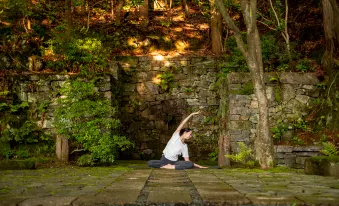
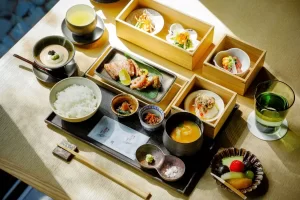
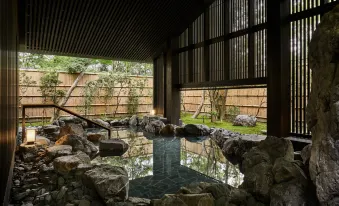

Types of Wellness Retreats in Japan
Japanese wellness retreats often integrate ancient practices, such as Zen meditation, on-sen (hot springs), aikido, and tea ceremonies, with modern wellness techniques like yoga and spa treatments. Here are the key types of wellness experiences available in Japan:
1. Hot Springs (Onsen) Resorts
Japan is world-famous for its natural hot springs, or onsen, which are found in volcanic regions across the country. Soaking in these mineral-rich waters is believed to have therapeutic effects, including improving circulation, relieving stress, and promoting relaxation.
- Hakone: Just an hour from Tokyo, Hakone is one of Japan’s most famous onsen resorts, offering stunning views of Mount Fuji. Many luxury hotels and ryokan (traditional inns) offer private and communal onsen baths.
- Beppu: Located on Kyushu Island, Beppu has a variety of hot spring baths, including mud baths, steam baths, and traditional onsens. It is considered one of the top onsen destinations in Japan.
- Ibusuki: Famous for its unique sand baths, where guests are buried in naturally heated sand for a deeply relaxing experience.
2. Zen and Meditation Retreats
Japan’s Zen Buddhism has deeply influenced its culture, especially when it comes to meditation and mindfulness. Zen monasteries and temples throughout the country offer peaceful retreats for those looking to deepen their practice and reconnect with themselves.
- Eiheiji Temple (Fukui): One of Japan’s most important Zen temples, offering meditation retreats where participants practice zazen (sitting meditation), chanting, and learn about Zen philosophy.
- Koyasan (Wakayama): Located on Mount Koya, the spiritual center of Shingon Buddhism, Koyasan offers temple stays where visitors can engage in meditation, sutra copying, and participate in the daily life of monks.
- Tassajara Zen Mountain Center (California, USA, but rooted in Japanese Zen practices): For those seeking a deeper connection to the Zen tradition, there are similar centers outside Japan that offer Zen-inspired retreats, though Japan itself remains the source of authentic Zen teachings.
3. Yoga and Mindfulness Retreats
Japan has seen a growing interest in yoga and mindfulness, blending these practices with the country’s ancient traditions to create holistic wellness experiences.
- Kushiro Yoga Retreat (Hokkaido): A peaceful retreat surrounded by nature, offering yoga, meditation, and mindful living workshops.
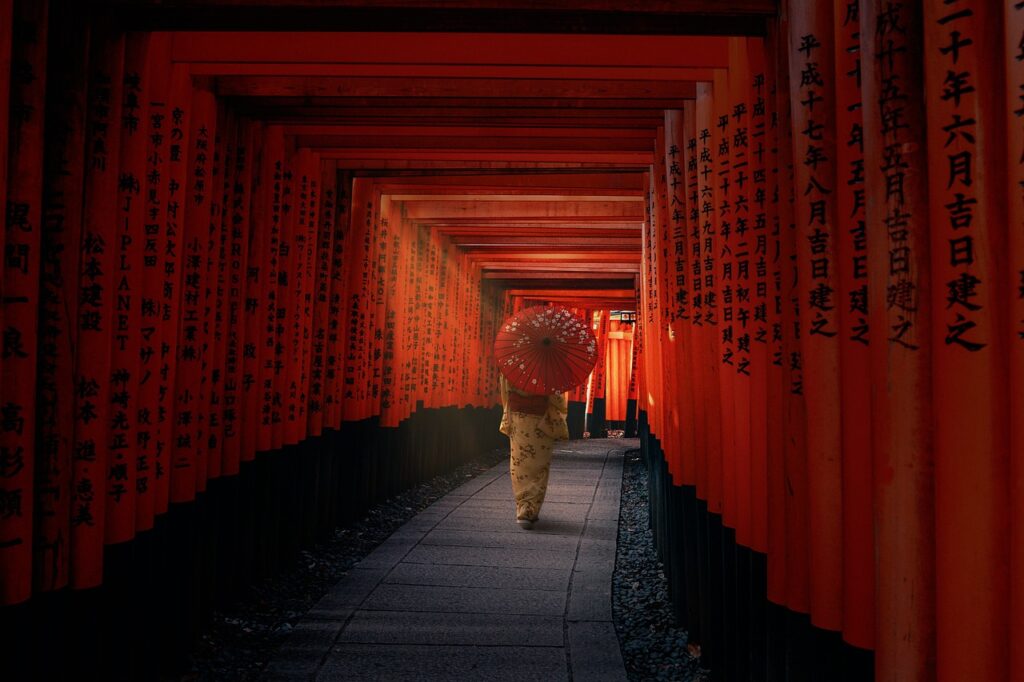
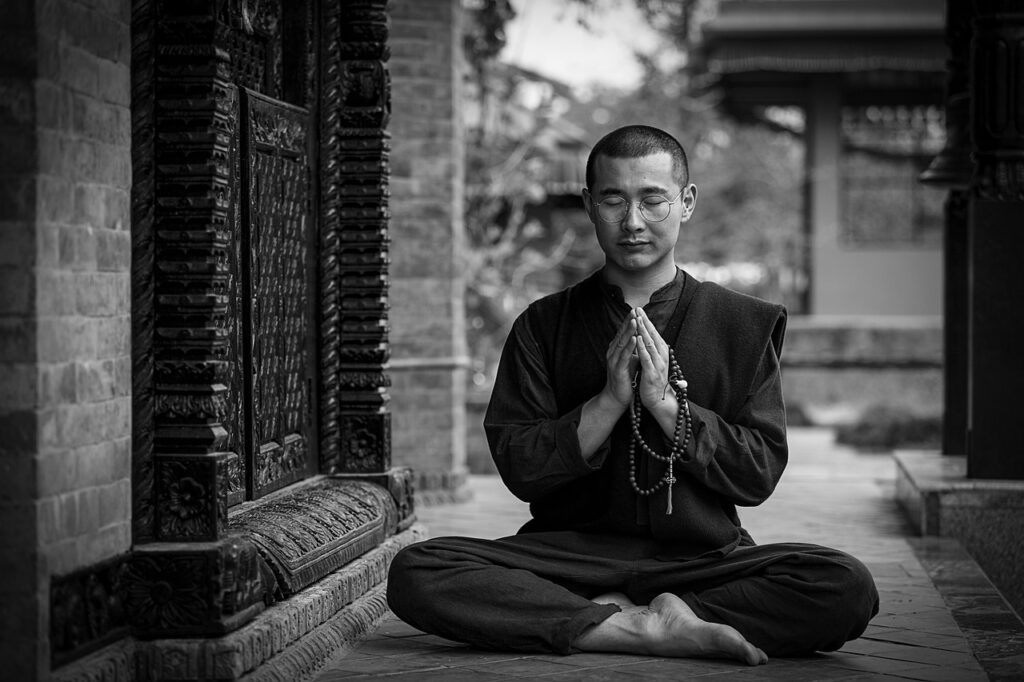

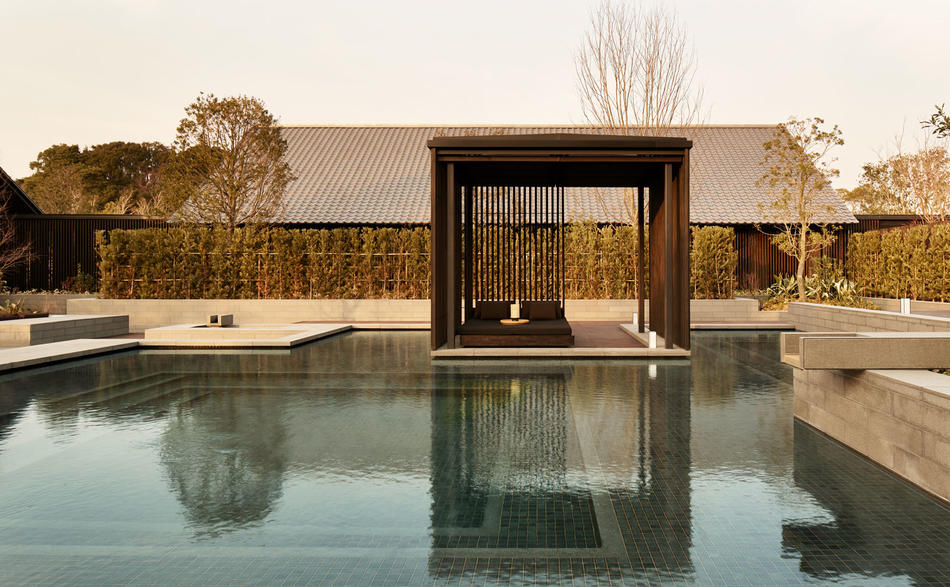
4. Traditional Japanese Wellness: Diet and Lifestyle
Japan’s culinary culture also plays a significant role in wellness, with many retreats focusing on healthy eating and traditional Japanese dietary practices that emphasize balance, seasonal eating, and nutrition.
- Shojin Ryori: This Buddhist vegetarian cuisine is often served at Zen temples, focusing on simple, clean, and seasonal ingredients. It’s commonly included in wellness retreats, offering a healthy, nourishing diet.
- Nara: Known for its herbal and organic food culture, some retreats in Nara offer health-conscious cooking classes and vegan or vegetarian meal plans.
- Matcha Retreats: With the growing popularity of matcha (green tea), some wellness retreats focus on the health benefits of matcha, incorporating tea ceremonies and matcha-based meals.
5. Nature Retreats and Forest Bathing (Shinrin-yoku)
Japan is known for its stunning landscapes and emphasis on connecting with nature. Many wellness retreats focus on immersing guests in nature, with activities such as hiking, forest bathing (Shinrin-yoku), and outdoor meditation.
- Nara and Kumano Kodo Pilgrimage Routes (Kii Peninsula): These ancient pilgrimage routes offer a serene connection to nature, with retreats offering spiritual guidance, meditation, and nature walks.
- Yakushima Island (Kagoshima): Known for its ancient cedar trees, this UNESCO World Heritage site is a prime location for Shinrin-yoku, where visitors practice mindfulness in the ancient forests.
- Nikko (Tochigi Prefecture): A mountainous area known for its serene temples and forests, offering retreats that focus on nature immersion and spiritual healing.
Shinrin-yoku, or “forest bathing,” has gained global recognition for its therapeutic effects, including reduced stress and improved mental clarity, and it is often a central focus of Japan’s wellness retreats.
6. Detox and Wellness Spa Retreats
For those looking to detox, rejuvenate, and rejuvenate their bodies, several luxury wellness resorts in Japan offer detox programs, Ayurvedic treatments, and traditional Japanese healing therapies.
- Amanemu (Shima): A luxury wellness resort with a focus on holistic health, offering therapeutic onsen baths, massages, detox programs, and gourmet healthy meals.
- Hakone Suishoen (various locations): High-end ryokan retreats that combine traditional hospitality with spa treatments, including detox programs and relaxation therapies.
- Hakone Kowakien Yunessun: A popular resort featuring a variety of bath experiences, including herbal and wine baths, which promote relaxation and detoxification.
These retreats often emphasize slow living and conscious presence, drawing on both the modern-day practices of yoga and traditional Japanese philosophies like Ikigai (finding purpose in life) and often combine onsens with meditation and spa services for a full wellness experience.

Popular Wellness Retreat Areas in Japan
- Kyoto: Known for its temples, Zen gardens, and cultural traditions, Kyoto offers numerous retreats focused on meditation, mindfulness, and spiritual well-being.
- Hakone: Famous for its hot springs, Hakone also offers nature-based wellness experiences and luxury retreats with stunning views of Mount Fuji.
- Hokkaido: The northernmost island offers peaceful retreats surrounded by snow-covered mountains and pristine forests, ideal for those seeking a serene environment for rest and recovery.
- Okinawa: Known for its healthy diet and the long lifespan of its inhabitants, Okinawa offers wellness retreats that focus on longevity, nutrition, and traditional healing practices.
- Mount Koya: A deeply spiritual place where Shingon Buddhists have practiced for over 1,000 years, this is a great place for those interested in spiritual wellness and Zen practices.

Ria's Resort & Retreat suggestions
Aman Kyoto Wellness
Set in a secret garden at the heart of a forest, Aman Kyoto rests a stone’s throw from Kyoto’s golden Kinkaku-ji Temple and 16 other Unesco World Heritage Sites. The resort is nonetheless a secluded world apart, with light-filled suites and pavilions set in tranquil glades and its steaming private onsen offering healing in the Aman Spa.
Amanemu (Shima, Mie Prefecture)
Amanemu is one of Japan’s most luxurious wellness retreats, offering an immersive experience with nature, culture, and holistic wellness. Located near the scenic Ago Bay, this resort specializes in wellness programs that include onsen baths, Ayurvedic therapies, detox programs, and rejuvenating spa treatments. The emphasis is on personalized well-being, with yoga, meditation, and organic, health-conscious cuisine. It also offers beautiful views and access to the sacred Ise Shrine, making it an ideal place for spiritual reflection and healing.
Banyan Tree, Kyoto
This hilltop Kyoto luxury hotel is the only one in the city with a Bamboo Pavilion, natural hot springs and an authentic Noh stage, where guests can experience classical Japanese performances. Experience peace and rejuvenation away from the city’s hustle at our Kyoto hotel with private onsen.
Gora Kadan (Hakone, Kanagawa Prefecture)
Gora Kadan is a luxury ryokan (traditional Japanese inn) nestled in the mountains of Hakone, offering an elegant combination of Japanese tradition and modern luxury. It’s famed for its exquisite onsen baths and peaceful ambiance, ideal for those seeking total relaxation. The ryokan also offers private onsen baths, traditional kaiseki meals, and personalized wellness programs focused on relaxation and rejuvenation.
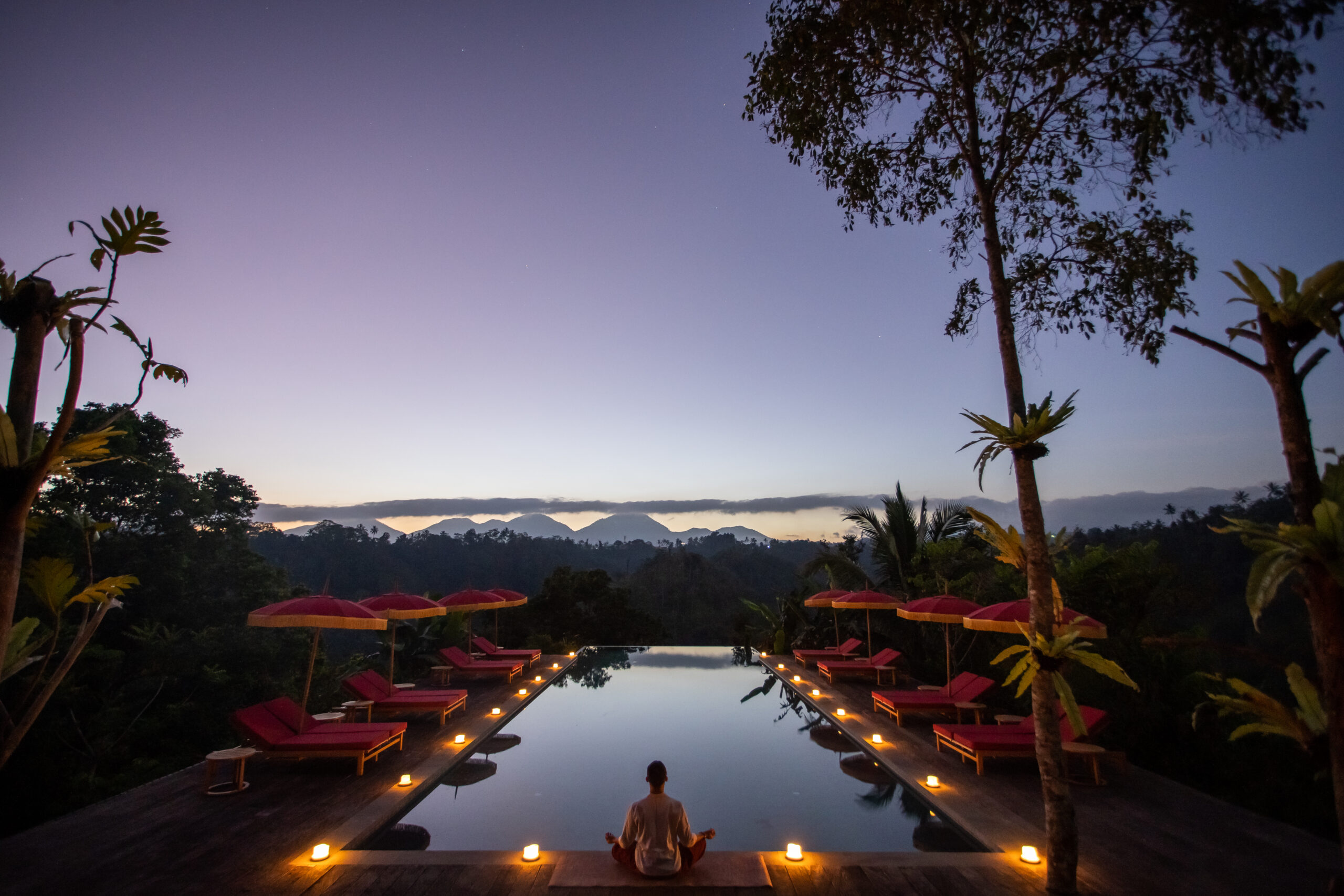
Conclusion
Japan’s wellness retreats are a harmonious blend of traditional practices and modern wellness techniques. Whether you’re seeking relaxation through onsen baths, mindfulness through meditation, or rejuvenation through nature immersion, Japan offers a wide variety of experiences that cater to the body, mind, and spirit. The country’s long-standing cultural practices combined with its stunning natural landscapes make it one of the best destinations for wellness tourism.
